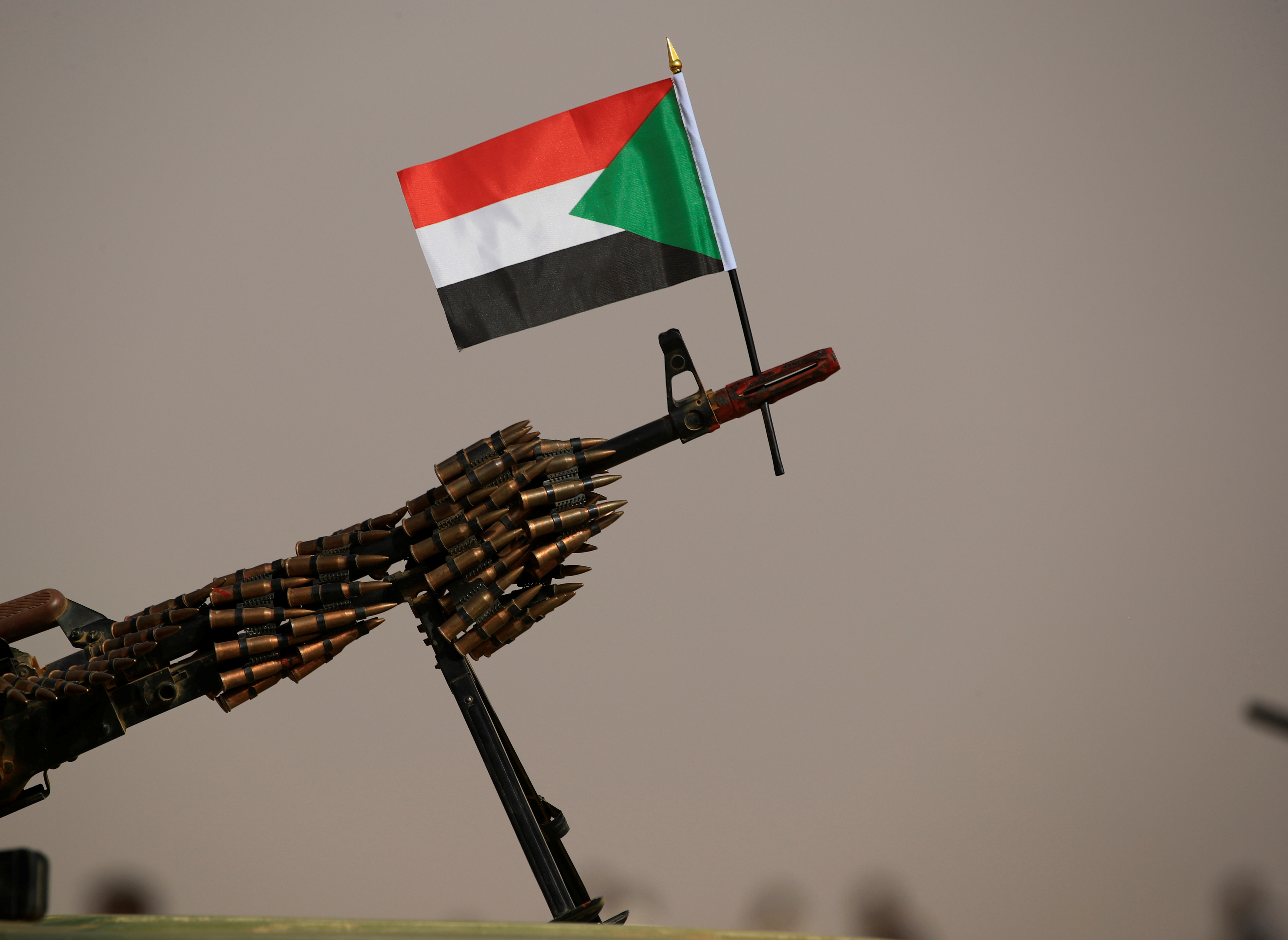
Warring rivals continue to spar in Sudan – in a conflict where its citizenry is bearing the brunt of the crisis – trying new moves as they wrestle for power.
Sudan’s military chief on Sunday ordered the freezing of all bank accounts belonging to the paramilitary Rapid Support Forces (RSF), amid continuing peace talks in Jeddah, Saudi Arabia.
Analysts say General Abdel Fattah al-Burhan’s move is to undercut both the RSF’s leader’s independence and to squash the force itself as the talks seem to move away from the army’s favourable outcome – but it may not end up having much of an effect.
RSF leader Mohamed Hamdan “Hemedti” Dagalo amassed wealth and built up his forces in multiple ways, which will help shield him from the cutoff, said Sami Hamdi, the managing director of International Interest, a political risk firm focusing on the Middle East.
Hemedti’s wealth and power have come from his gradual acquisition of Sudanese financial institutions, control of a significant portion of the country’s gold reserves, and deployment of his RSF troops to fight with allies in places like Yemen and Libya, he said.
Eric Reeves, a professor at Smith College in the United States whose research on Sudan spans more than two decades, agrees that most of the RSF’s wealth will not be affected.
“Much RSF wealth is offshore, especially [in] the UAE, and is not going to be affected by the freeze,” he told Al Jazeera.
The RSF’s wealth in gold, he added, is neither controlled by the Central Bank of Sudan nor subject to the “horrific inflation ravaging Sudan as a whole”.
Much of the country’s banking system has in turn collapsed, said Reeves, the fighting damaging much of the infrastructure.
The RSF’s gold mines and deployment of forces abroad, in particular, have helped Hemedti build his paramilitary’s power.
“It’s important to stress that it’s only over the past five years in which the [RSF] has become this formidable organisation able to take on the army,” Hamdi said, referring to deposed former Sudanese President Omar al-Bashir.
“And that’s as a result of Hemedti being able to access finances independently and also [being] able to operate an almost independent foreign policy,” he added.
The RSF has put up a fight against the army as the conflict drags on.
Since the conflict broke out just over a month ago, the fighting has killed hundreds of people, sent more than 200,000 fleeing into neighbouring states and displaced another 700,000 inside the country – and risks destabilising the region and drawing in outside powers.
Boost morale, encourage defections
Analysts say al-Burhan’s decree was more for show, meant to reassure the army and to encourage RSF soldiers to defect from Hemedti.
“This is a symbolic gesture, perhaps meant to raise morale among the [Sudanese Armed Forces] which has failed to dislodge the RSF from Khartoum,” said Reeves.
Both sides have been waging a battle to get fighters to defect from their respective forces, with social media rife with allegations of defections, said Hamdi.
The Sudanese army has enticed RSF soldiers to desert Hemedti by promising a general pardon for anyone who fought for him, he added, but it has so far not been very effective.
“Given that not many have defected, they’re now going after [their] pockets, which they believe is the reason that Hemedti is able to have these soldiers in the first place, through the finances,” Hamdi explained. “So the targets here are the ordinary soldiers – trying to get them to defect from Hemedti.”
But Hemedti’s other revenue sources will ensure that he can keep paying his soldiers, analysts say.
The RSF’s foreign military allies, in turn, could also help fund it if needed, said Adel Abdel Ghafar, director of the Foreign Policy and Security Program at the Middle East Council on Global Affairs.
“External supporters of the RSF will also be able to send much-needed cash to the RSF to prop it up financially,” Abdel Ghafar told Al Jazeera.
“This could be done via Libya in a similar way that Haftar resupplied ammunition to the RSF. Resupplying via Libya also provides external backers such as the UAE with plausible deniability as they would not have directly supported the RSF if it goes via Haftar,” he added, referring to Khalifa Haftar, the eastern Libya-based military strongman.
Jostled by Jeddah talks
International perception of the conflict, especially as talks between the warring factions are continuing in Jeddah, Saudi Arabia, may have also spurred al-Burhan’s decision, Hamdi said.
There is a view among Sudanese army personnel that international sympathies lie with Hemedti, he added.
The army’s quandary has surfaced from the Jeddah talks, which critics say are resembling the 2019 Riyadh Agreement on the Yemen conflict, which helped cement the independence of Yemen’s southern separatists, instead of forcing them to recognise the Yemeni government, said Hamdi.
“[The Sudanese army] believe that the Jeddah agreement will follow something very similar in that Hemedti will not be forced to merge with the army or … cede his independence to the army,” said Hamdi, adding that instead, it will maintain Hemedti’s independence outside of it.
“That’s why we see this acceleration of trying to resolve the issue militarily in order to crush Hemedti’s ability to operate outside the armed forces – before these negotiations impose on the army that Hemedti’s independence be preserved,” the analyst said.
If anything, the move highlights al-Burhan’s upper hand in leveraging state institutions as a means to an end, said Abdel Ghafar.
“The Sudanese army can leverage their control of state institutions and the financial system in their fight with the RSF,” he said.







